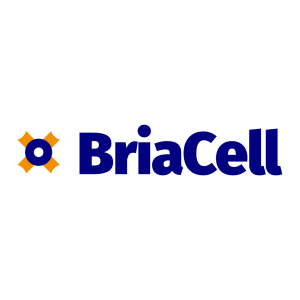BriaCell Reports “Late-Breaker” Phase 3 Data at AACR 2025: Positive Tolerability Profile and Potential Response Biomarkers Identified
Rhea-AI Summary
BriaCell Therapeutics has reported promising Phase 3 data for its Bria-IMT™ treatment in metastatic breast cancer at AACR 2025. The study identified key biomarkers that could predict patient response to treatment, including positive delayed-type hypersensitivity (DTH) and favorable Neutrophil-to-Lymphocyte Ratio (NLR).
Early clinical data (n=62) showed median progression-free survival of 3.67 months across all arms. Notably, positive DTH correlated with better PFS (4.5 vs 2.5 months), while favorable NLR and lower Circulating Tumor Cells showed significant survival benefits. The Bria-IMT regimen demonstrated excellent tolerability with no treatment discontinuations.
The ongoing multicenter randomized study involves 57 US clinical sites, evaluating overall survival with Bria-IMT plus checkpoint inhibitor versus standard treatment. The trial, which received FDA Fast Track designation, will analyze interim data after 144 patient events, potentially leading to full approval for metastatic breast cancer treatment.
Positive
- Phase 3 data shows significant biomarker correlations that could help identify responsive patients, potentially improving treatment success rates
- Positive DTH patients showed better progression-free survival (4.5 vs 2.5 months, p=0.001)
- Bria-IMT demonstrated excellent tolerability with no treatment discontinuations
- FDA Fast Track designation received for Bria-IMT combination regimen
- 57 US clinical sites actively enrolling patients for Phase 3 trial
Negative
- Relatively short median progression-free survival of 3.67 months across all arms
- Some biomarker correlations only showed trending significance (CAML count, p=0.10)
- Presence of Circulating Tumor Cells associated with worse progression-free survival (2.4 vs 3.8 months)
News Market Reaction
On the day this news was published, BCTX declined 2.83%, reflecting a moderate negative market reaction.
Data tracked by StockTitan Argus on the day of publication.
- Phase 3 clinical data shows potential predictive biomarkers for treatment response, first identified in Phase 2 study
- Biomarkers could be utilized to predict and provide better patient outcomes, including response rates and survival benefits
- Positive delayed-type hypersensitivity (DTH) (p = 0.001) and a favorable Neutrophil-to-Lymphocyte Ratio (NLR) (p = 0.02) linked to longer progression-free survival (PFS) in Phase 3 patients
- Presence of Circulating Tumor Cells (CTC) after patients’ initial Phase 3 treatment supports role as negative prognostic marker (p = 0.04)
- Bria-IMT Phase 3 regimen was well-tolerated with a preferred tolerability profile
PHILADELPHIA and VANCOUVER, British Columbia, April 30, 2025 (GLOBE NEWSWIRE) -- BriaCell Therapeutics Corp. (Nasdaq: BCTX, BCTXW, BCTXZ) (TSX: BCT) (“BriaCell” or the “Company”), a clinical-stage biotechnology company that develops novel immunotherapies to transform cancer care, is presenting clinical data from the pivotal Phase 3 study of its lead product candidate, Bria-IMT™, in metastatic breast cancer (BRIA-ABC; NCT06072612) supporting the use of specific biomarkers to predict patients’ clinical response to Bria-IMT treatments.
Biomarkers could be utilized to predict and provide better patient outcomes, including response rates and survival benefits with BriaCell’s novel Bria-IMT regimen.
“Using biomarkers as powerful instruments to predict patient responsiveness to the Bria-IMT treatment would allow physicians and oncologists to identify potential responders sooner, providing better clinical outcomes and ultimately extending patients’ lives,” stated Carmen Calfa, MD, Clinical Research Lead for the breast site disease group at the University of Miami Miller School of Medicine, Co-Director of the Cancer Survivorship Program at Sylvester Comprehensive Cancer Center, and Principal Clinical Investigator of the Phase 2 Bria-IMT study.
“We are very pleased with our early Phase 3 biomarker data highlighting their importance as important tools in BriaCell’s fight against metastatic breast cancer, a difficult to treat and deadly disease,” stated Dr. William V. Williams, BriaCell’s President & CEO.
“The clinical data reported today demonstrates the potential use of certain key biomarkers to predict MBC patients’ clinical response to the Bria-IMT regimen,” noted Giuseppe Del Priore, MD, MPH, BriaCell’s Chief Medical Officer. “We will continue to evaluate these findings as we advance our goal of treating this serious disease.”
The poster is summarized below and linked here: https://briacell.com/scientific-publications/.
Title: Bria-ABC1 vs physician choice in late-stage MBC; early biomarker correlates of the randomized registration trial
Session Title: Late-Breaking Research: Clinical Research 4
Session Date and Time: 4/30/2025 9:00 AM – 12:00 PM CST
Location: Poster Section 49
Poster Board Number: 14
Abstract Presentation Number: LB408
Kaplan Meier analysis of early clinical data (n=62) in this multicenter study showed median progression free survival across all arms of 3.67 months. Prespecified subset analyses of PFS based on biomarker status were reported as follows:
- Positive DTH was significantly related to better PFS (4.5 vs 2.5 months, p = 0.001)
- Neutrophil-to-lymphocyte ratio (NLR) < 0.7 and ≥ 2.3 following the 1st treatment administration had significantly lower (p = 0.02) median progression-free survival (PFS)
- Circulating tumor cells (CTCs) < 1 were significantly related to better PFS values (3.8 months vs 2.4 vs, p = 0.04)
- Baseline Cancer-Associated Macrophage-Like Cells (CAML) count ≥ 5 trended toward a higher PFS value (3.7 vs 2.2 months, p = 0.10)
The Bria-IMT regimen remains well-tolerated, with generally manageable treatment-emergent adverse events (TEAEs). There have been no Bria-IMT related treatment discontinuations, underscoring Bria-IMT's excellent tolerability and favorable safety profile.
About the Bria-ABC Study
The multicenter randomized open label study is evaluating overall survival with the Bria-IMT regimen in combination with checkpoint inhibitor, versus Treatment of Patients’/Physicians’ Choice (TPC) in advanced metastatic or locally recurrent breast cancer (aMBC) patients with no approved alternative therapies available. Fifty-seven clinical sites in the US are actively enrolling patients and additional sites are in various stages of start-up.
Interim data will be analyzed once 144 patient events (deaths) occur, comparing the overall survival (OS) in patients treated with the Bria-IMT combination regimen versus those treated with physician’s choice as the primary endpoint. Positive results of the pivotal Phase 3 study could result in full approval and marketing authorization for Bria-IMT in MBC patients. BriaCell recently announced positive Phase 2 survival data in a similar MBC patient population treated with the same Bria-IMT combination regimen. The Bria-IMT combination regimen has received FDA Fast Track designation.
For additional information on BriaCell’s pivotal Phase 3 study of Bria-IMT and an immune check point inhibitor in metastatic breast cancer, please visit ClinicalTrials.gov NCT06072612.
About BriaCell Therapeutics Corp.
BriaCell is a clinical-stage biotechnology company that develops novel immunotherapies to transform cancer care. More information is available at https://briacell.com/.
Safe Harbor
This press release contains “forward-looking statements” that are subject to substantial risks and uncertainties. All statements, other than statements of historical fact, contained in this press release are forward-looking statements. Forward-looking statements contained in this press release may be identified by the use of words such as “anticipate,” “believe,” “contemplate,” “could,” “estimate,” “expect,” “intend,” “seek,” “may,” “might,” “plan,” “potential,” “predict,” “project,” “target,” “aim,” “should,” “will,” “would,” or the negative of these words or other similar expressions, although not all forward-looking statements contain these words. Forward-looking statements, including those about BriaCell’s use of biomarkers in its ongoing Phase 3 study to predict patient responsiveness to the Bria-IMT treatment, providing better clinical outcomes and extending patients’ lives; the use of biomarkers to predict clinical responses to the Bria-IMT regimen with respect to MBC patients specifically; BriaCell continuing to evaluate findings as they advance their goal of treating MBC patients; Bria-IMT’s tolerability and safety profile; timelines regarding BriaCell’s analysis of interim data; and positive results of BriaCell’s Phase 3 study resulting in full approval and marketing authorization for Bria-IMT in MBC patients, , are based on BriaCell’s current expectations and are subject to inherent uncertainties, risks, and assumptions that are difficult to predict. Further, certain forward-looking statements are based on assumptions as to future events that may not prove to be accurate. These and other risks and uncertainties are described more fully under the heading “Risks and Uncertainties” in the Company's most recent Management’s Discussion and Analysis, under the heading "Risk Factors" in the Company's most recent Annual Information Form, and under “Risks and Uncertainties” in the Company's other filings with the Canadian securities regulatory authorities and the U.S. Securities and Exchange Commission, all of which are available under the Company's profiles on SEDAR+ at www.sedarplus.ca and on EDGAR at www.sec.gov. Forward-looking statements contained in this announcement are made as of this date, and BriaCell Therapeutics Corp. undertakes no duty to update such information except as required under applicable law.
Neither the Toronto Stock Exchange nor its Regulation Services Provider (as that term is defined in the policies of the Toronto Stock Exchange) accepts responsibility for the adequacy or accuracy of this release.
Contact Information
Company Contact:
William V. Williams, MD
President & CEO
1-888-485-6340
info@briacell.com
Investor Relations Contact:
investors@briacell.com
1 Bria-ABC refers to the pivotal Phase 3 Study entitled, Study of the Bria-IMT Regimen and CPI vs Physicians' Choice in Advanced Metastatic Breast Cancer (BRIA-ABC) NCT06072612








